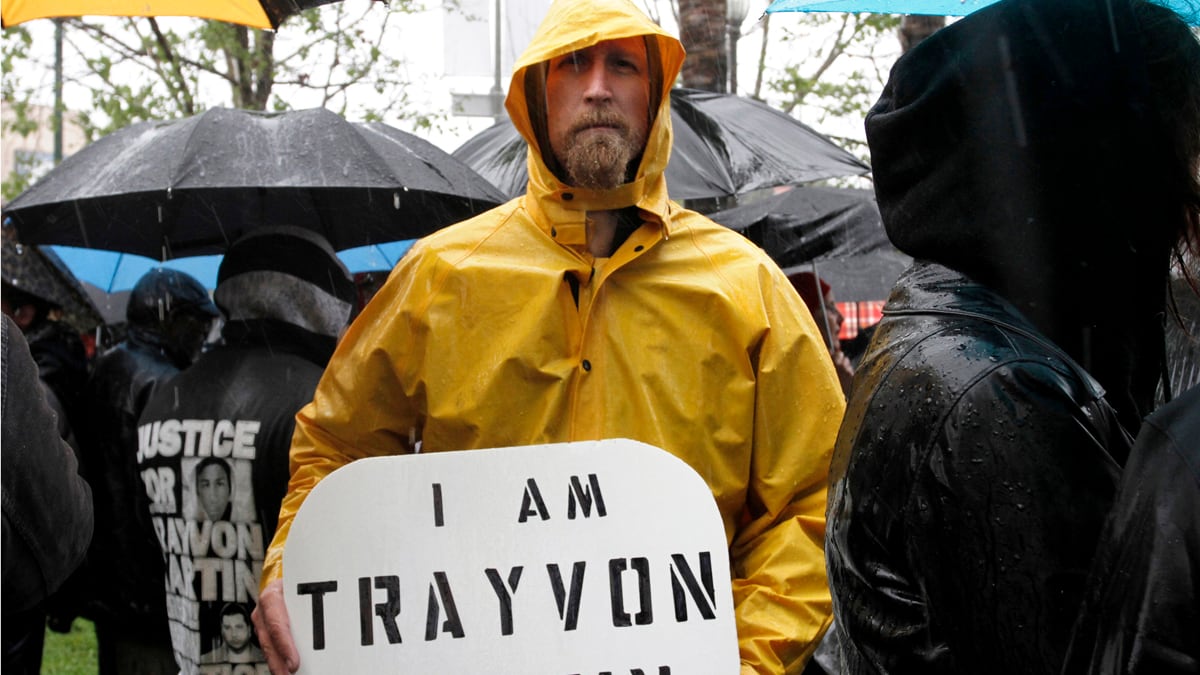National media attention and public outcry have rescued the senseless killing of 17-year-old Trayvon Martin from obscurity and created reason to believe that justice may yet prevail. Although the local Sanford, Fla., police department failed to arrest the admitted killer—claiming that there was insufficient evidence to do so—both state and federal law-enforcement authorities now have begun investigations of their own.

As outrageous as the facts of this case appear to be, they also embody a depressingly common pattern.
Young black men are often presumed to be criminal wrongdoers. They are stereotyped as violent, aggressive, up to no good.
This perception shadows black men, many of whom have stories of the car doors that lock when we walk past, the purses that are clutched as we approach, the glances laden with the expectation that we will do wrong.
And black boys’ parents, people like me, worry especially about our children encountering the police, or private individuals, like George Zimmerman, Trayvon Martin’s killer, who have taken it upon themselves to act in that role. We worry that the wrong move, or attitude even, might leave our child sprawled on the pavement, yet another victim of a person armed with a gun who felt threatened.
These anxieties reflect not only anecdote and personal experience. Social-science research has documented the unfavorable stereotypes associated with young black men. Studies have found, for example, that research participants are more likely to mistake a cellphone for a gun when it is held by a black man than by a white one. The combination of being black and male can sometimes cause people to perceive a threat even when there isn’t one.
Black men labor under a cloud of suspicion partly due to the racist attitudes that have long shaped black life. Even people who openly profess “race doesn’t matter” may nonetheless respond to others on the basis of race. Americans are far from color-blind.
But racist attitudes are not the whole story.
Some years ago, Jesse Jackson candidly admitted, “There is nothing more painful to me at this stage in my life than to walk down the street and hear footsteps and start thinking about robbery. Then look around and see somebody white and feel relieved.” The reverend’s sense of relief reflects his awareness of an unfortunate reality: that young black men, the evidence indicates, commit a disproportionate amount of violent crime.
Black men commit more crimes than members of other groups in large part because they are more consistently and deeply disadvantaged than other groups. Even as some black men have reached the pinnacle of power, many times more languish in deplorable conditions.
More than 70 percent of black children are now born to unmarried parents; most black boys grow up without their father, and often in poor, racially segregated communities that offer neither the stability nor opportunities of mainstream society. Shunted into inferior schools, many African-American boys do not acquire the skills they need. Half of black boys drop out of high school, only to enter a job market in which opportunities for poorly educated men have steadily diminished during the past few decades. No wonder that two out of every three black male high-school dropouts, and one in four black boys overall, spend time in jail.
Even those young black men who overcome the barriers in their path must contend with the negative stereotypes created by the failure of so many others. Unable or unwilling to distinguish between those who pose a threat and those who do not, many Americans result to race and gender as quick and simple markers of dangerousness. They cast suspicion even on those black boys who, like Trayvon Martin, are doing nothing wrong.
As his death reminds, black boys are not only disproportionately perpetrators of violent crime, they are often its victims as well.






